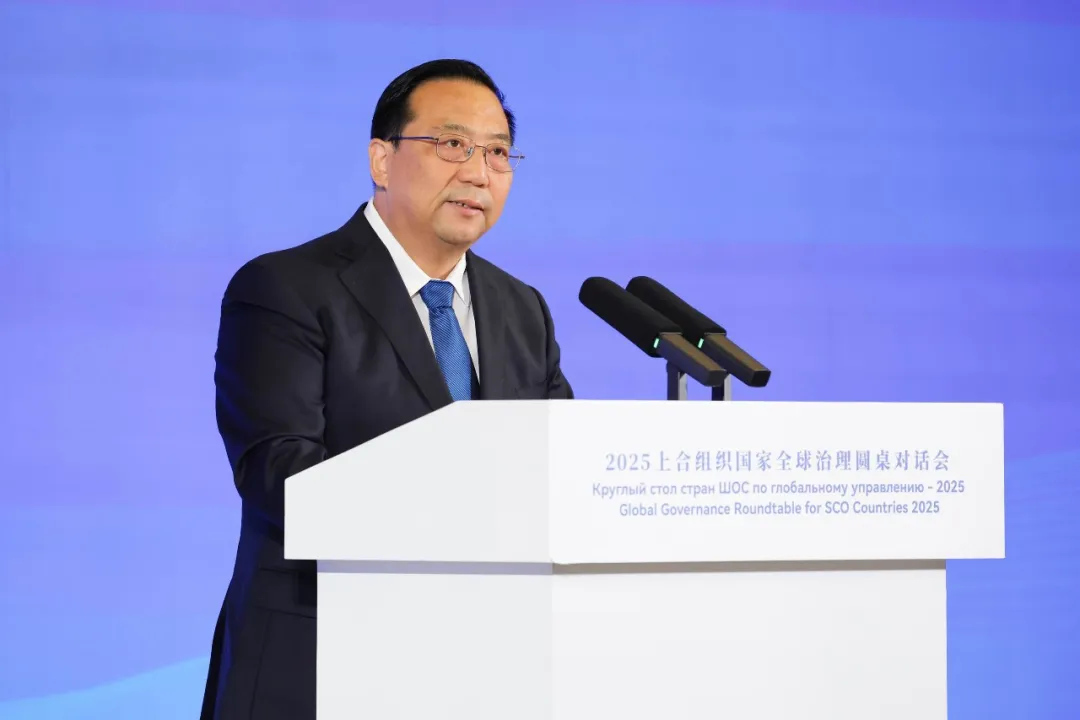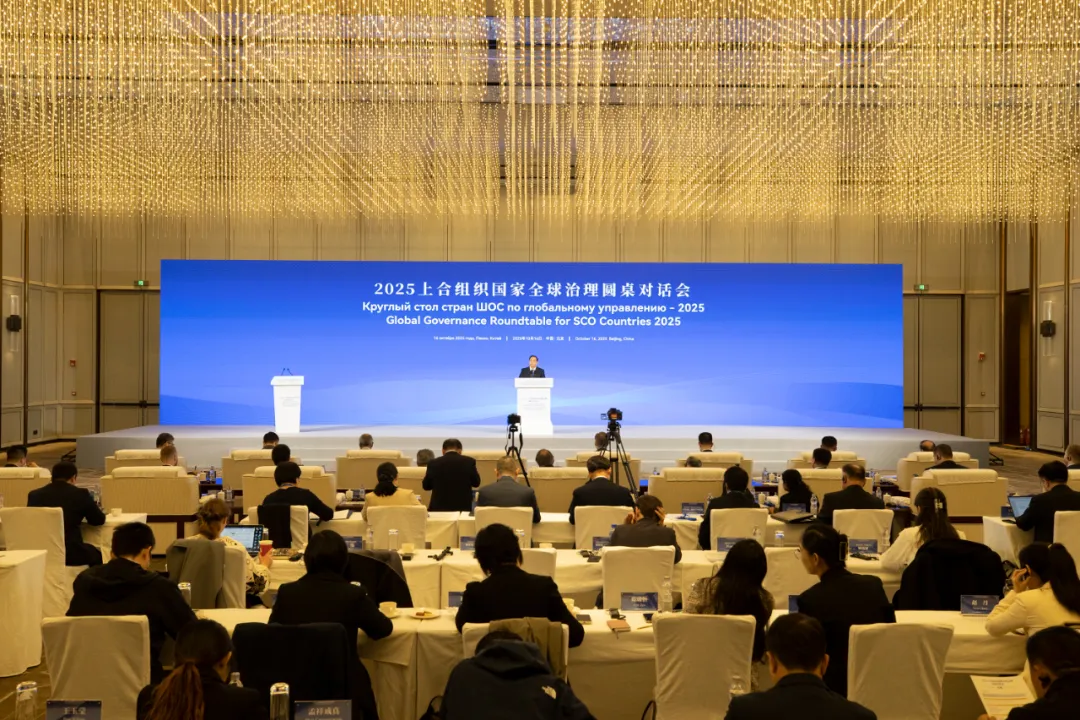China's Global Governance Initiative wins wide praise at SCO roundtable
Officials and experts have spoken highly of China's Global Governance Initiative (GGI), saying it responds to the shared aspirations of people around the world, meets the pressing needs of the times, and injects fresh momentum into building a fairer, more just, and more inclusive international order.
They made the remarks at the Global Governance Roundtable for Shanghai Cooperation Organization (SCO) Countries 2025, held in Beijing on Thursday.
In his opening speech, Chang Bo, president of China International Communications Group (CICG), said that this dialogue is a practical step to implement the GGI, promote the Shanghai Spirit, and enhance understanding and trust among SCO countries. He called for openness and inclusiveness to expand global governance cooperation, pragmatic innovation to enhance its effectiveness, and mutual learning to strengthen its foundation.

Chang Bo, president of China International Communications Group (CICG), delivers a speech at the Global Governance Roundtable for SCO Countries 2025 in Beijing, Oct. 16, 2025. [Photo/CICG]
Chang said that CICG, as one of the roundtable's organizers, will implement the initiative by collaborating with SCO media, think tanks, cultural organizations, and visionary individuals. It will also launch a global governance media and think tank alliance, an SCO innovative governance communication project, a database of SCO practical cooperation cases, and a joint research plan on dialogue among civilizations and global governance.

The Global Governance Roundtable for SCO Countries 2025 is held in Beijing, Oct. 16, 2025. [Photo/CICG]
United Nations Resident Coordinator in China Siddharth Chatterjee said the GGI underscores that all countries, regardless of size, wealth, or strength, are both participants in and beneficiaries of global governance. This fully aligns with the principles enshrined in the U.N. Charter and the direction of a fair and just global governance system, he said.
Chatterjee noted that this year marks the 80th anniversary of the founding of the U.N. and that the globe faces profound transformation and mounting challenges including the digital divide, climate change, geopolitical tensions and widening inequality.
The GGI provides a forward-looking framework that brings countries together and calls for greater voice for developing nations, as well as deeper consultation and broader consensus on issues concerning science, technology, human well-being, and global governance, he said.
Former Foreign Minister of Kyrgyzstan Alikbek Jekshenkulov said the current era is one of interdependence, where solving global challenges requires "cooperation rather than competition."
He noted that the ideas embodied in the GGI— inclusiveness, fairness, justice, cooperation, and respect for sovereignty— are highly consistent with the values upheld by Central Asian countries.
Describing the initiative as a bridge for common development among different models, Jekshenkulov said it opens new space for dialogue and practical cooperation.
Secretary-General of the SCO Nurlan Yermekbayev said the GGI shares much common ground with the Shanghai Spirit, as both stress respect for sovereignty, equality among nations, observance of international law, and adherence to multilateralism. He said that the initiative will gain broad support within the SCO countries.
In a video address to the event, Jamshed Toshev, deputy director of SCO Center of Friendship and Cooperation in Tajikistan, said the world is undergoing rapid changes and profound contradictions, and that traditional models of international interaction can no longer meet the new realities.
The world urgently needs to explore new forms of global governance based on equality, inclusiveness and mutual respect— the very core values upon which the GGI is founded, he said.
Toshev said that the initiative's unique strength lies in its multilateral and cooperative nature, as it provides a common platform for dialogue and collaboration among all countries.
He also noted that the GGI echoes the vision of building a community with a shared future for humanity and creates new opportunities for cooperation in sustainable development, energy and food security, education and talent cultivation, scientific and technological innovation, as well as cultural and people-to-people exchanges.
Sohail Mahmood, director-general of the Institute of Strategic Studies Islamabad, said Pakistan has supported the GGI from the very beginning, as it helps address the underrepresentation of developing countries and the Global South in international governance, and responds to challenges such as the erosion of international law and the weakening of global institutions.
He added that the initiative also reflects China's growing global role. China's series of major global initiatives embody the country's wisdom, offering stability and direction in a time of uncertainty, and contributing to a fairer, more balanced, and multipolar global order, Mahmood said.
(with input from chinadaily.com.cn)


